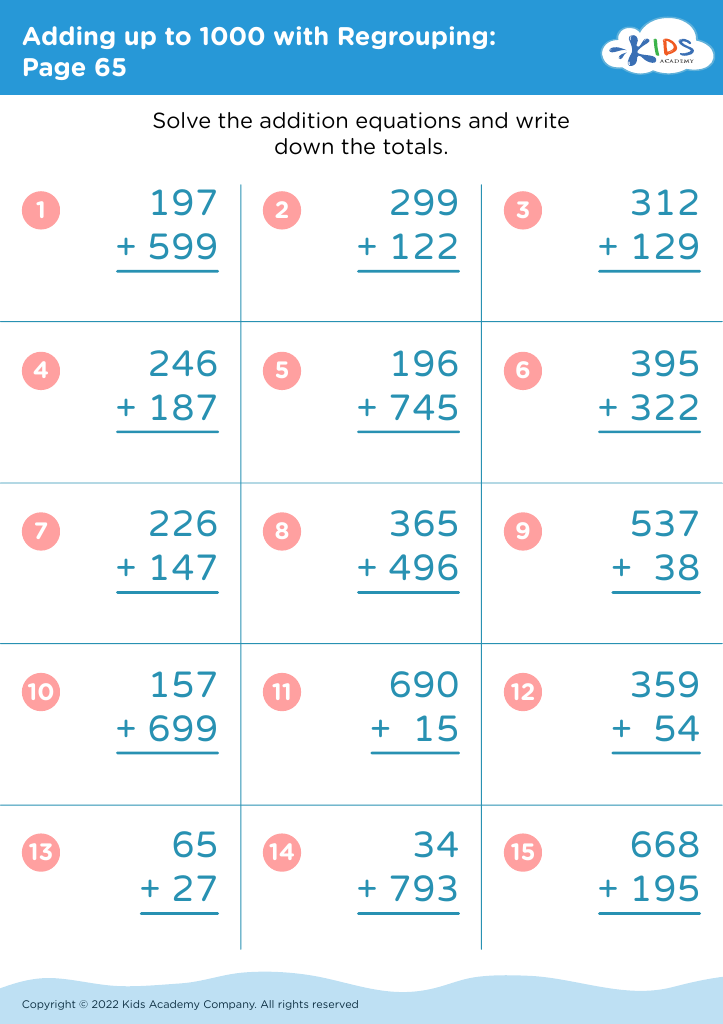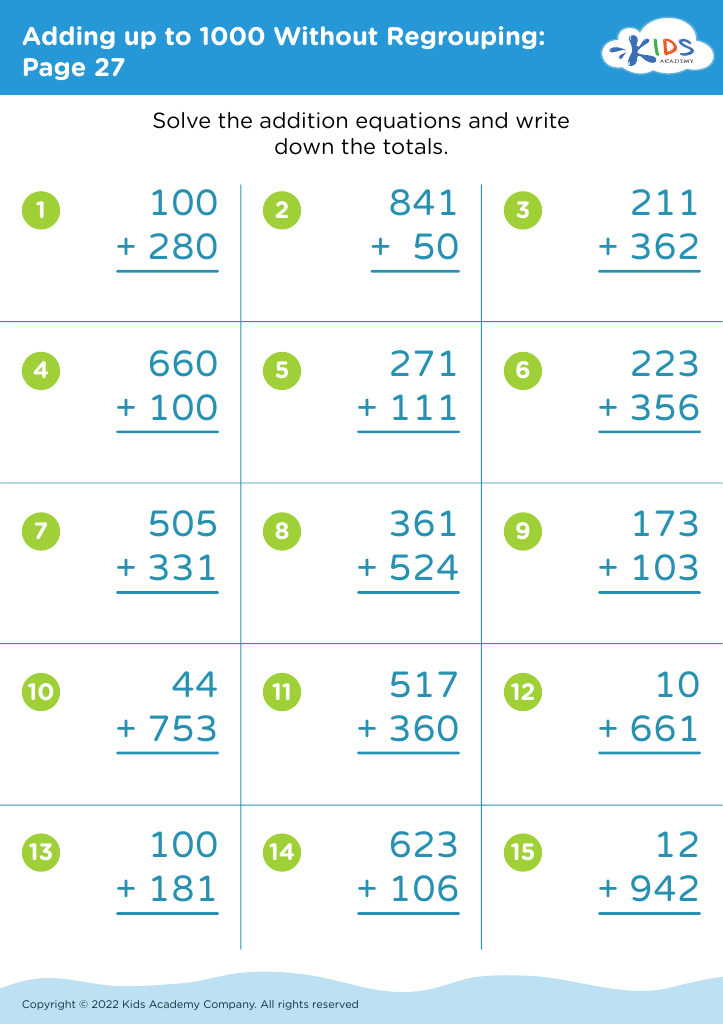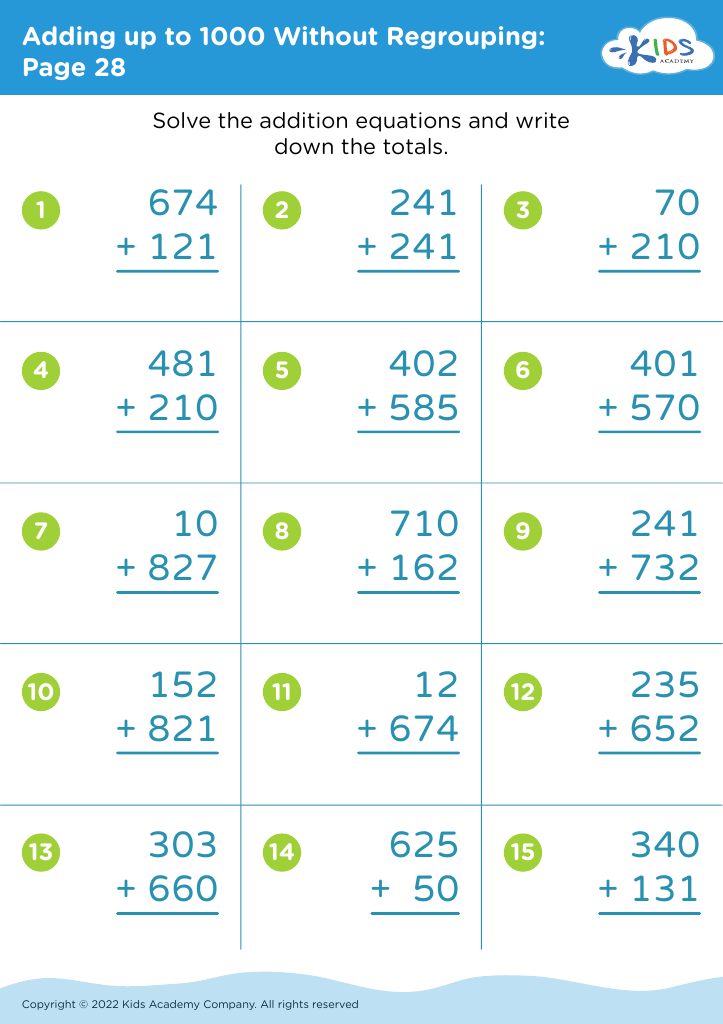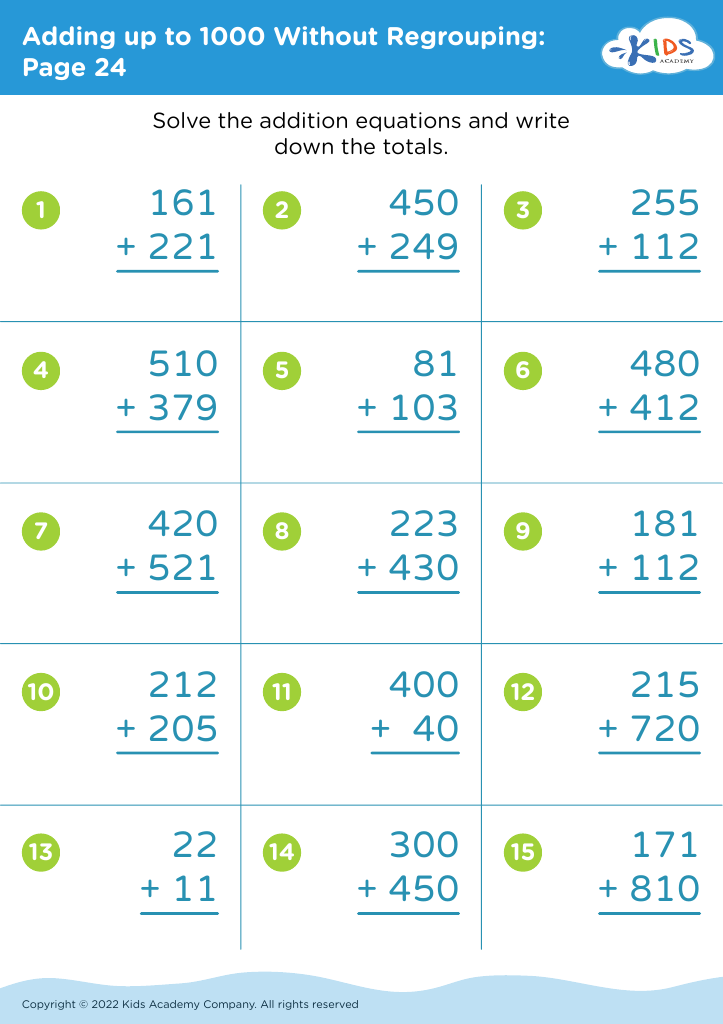Simplifying Fractions Adding up to 1000 Worksheets for 7-Year-Olds
6 filtered results
-
From - To
Unlock your child's math potential with our "Simplifying Fractions Adding up to 1000 Worksheets," specially designed for 7-year-olds! These engaging and interactive worksheets help young learners grasp the essential concept of simplifying fractions while enhancing their mathematical skills in addition. With a focus on numbers adding up to 1000, students will enjoy a variety of exercises that make learning enjoyable and effective. Featuring clear instructions and colorful graphics, our worksheets cater to different learning styles, ensuring every child can succeed. Perfect for classroom use or at-home practice, these resources will build confidence and foster a love for math in your little ones!
Simplifying fractions is a fundamental mathematical skill that lays the groundwork for more complex concepts. For 7-year-olds, learning to simplify fractions adds up to understanding numbers better, especially when they encounter fractions in everyday situations, such as sharing food or measuring ingredients.
Teaching children how to simplify fractions by recognizing and reducing them to their lowest terms helps them develop critical thinking. It enhances their ability to compare and order fractions, which is crucial for their progression in mathematics. Understanding fractions also introduces them to the concepts of numerators and denominators, fostering a deeper comprehension of division and multiplication.
When fractions add up to 1,000, it engages young learners in hands-on activities that make math interactive and fun. Such exercises encourage students to apply their knowledge creatively, linking math to real-life situations. Moreover, it fosters collaboration when done as group activities, promoting social skills.
Parents and teachers should care about this subject because it not only builds a strong foundation in mathematics but also supports overall cognitive development. Encouraging children to embrace math at an early age develops confidence and enthusiasm for the subject, which is vital for lifelong learning and academic success.

















